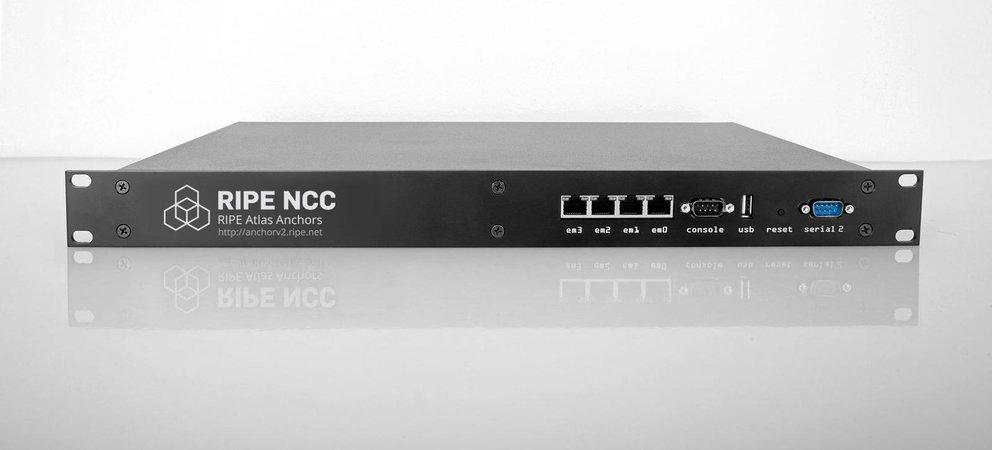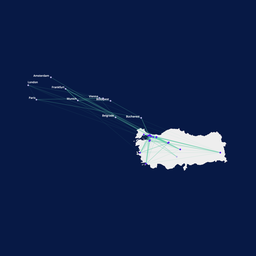Until now, native IPv4 and IPv6 has been one of the conditions of hosting a RIPE Atlas anchor. However, we realise that IPv6 simply isn't available in some would-be anchor hosts' ASNs. As a result, we've decided to support IPv4-only anchors.
RIPE Atlas anchors are the powerhouses of the RIPE Atlas network, providing a huge amount of data about regional connectivity wherever they are deployed. Whenever possible, we want to use anchors to measure both IPv4 and IPv6 connectivity. However, sometimes this is simply not possible because IPv6 is not available in a given ASN thanks to a lack of upstream providers offering it.
Although we want to do everything possible to encourage IPv6 deployment in networks around the world, the aim of RIPE Atlas is to measure the entire Internet. Until now, we were missing a lot of IPv4-only networks that we could have been measuring with RIPE Atlas - which is why we made the decision to support IPv4-only anchors.
However, we will only support IPv4-only anchors hosted in ASNs that cannot announce IPv6 for technical reasons. We will automatically check for IPv6 capability during the anchor application process using the RIPEstat Announced Prefixes tool.
We've already been approached by several would-be anchor hosts who were eager to host an anchor in their networks but were technically unable to provide IPv6, and we'll do our best to reach out to them to let them know that they will now be able to host an anchor. If you or anyone you know falls into this category, please get in touch with us at atlas [at] ripe [dot] net. And if you have any feedback about this particular topic, be sure to log in to RIPE Access and then leave a comment below.





Comments 6
The comments section is closed for articles published more than a year ago. If you'd like to inform us of any issues, please contact us.
Gert Döring •
I think this is a totally wrong signal to send. ATLAS supports IPv4 only networks today: you can connect as many probes to v4-only networks as you want. But the Anchors are "the cool stuff", and there should be an incentive for the host here - technically, there are no excuses for not having v6 anymore. Politically, I'm aware that there are countries where IPv6 is not possible today (all connections have to go through the incumbent, the incumbent doesn't do IPv6, and tunneling is prohibited) - but that makes an even stronger case for requiring IPv6 for Anchor hosts: here's an incentive to start the required lobby work to either permit tunnels or make the regulator kick the incumbent. What is next? Permit Anchors on trucks that only have power 2 hours a day, because some networks can not have reliable power? No! That's what probes are there for.
Leo Vegoda •
Can you please describe an ASN "that cannot announce IPv6 for technical reasons"?
Robert Kisteleki •
"Technical reasons" really mean that the host cannot use IPv6, as opposed to they just don't want to. For example, when the upstream(s) don't provide IPv6 connectivity.
Lester Clayton •
This is absolutely the wrong message to send to people. We're trying to promote IPv6 over IPv4. Don't resolve a problem by allowing them to use a technology that is old and unfeasible due to its limited usefulness. The solution: Switch to an internet service provider that supports IPv6.
Arash Naderpour •
Your solution is not practical in real world, I don't think that any one switch the provider to just get IPv6 connectivity,
Michuki Mwangi •
Thank you Ripe NCC for considering this option. We have been hoping to get at least 10 anchors in Africa this year. However, this has proved difficult because our host partners who are IXPs do not have a management network on IPv6. The IXPs depend on local ISPs for transit to their management network. Most of the time the transit network is donated. It means that they are not in a position to demand their transit provider to implement native IPv6 and it happens. They can lobby and influence and nag, but that takes time and will not be immediate, especially in a region where the RIR still has some IPv4 left. I think this is an exception and not the rule. It provides an opportunity to get more anchors deployed in consideration that not all regions are at the same level of development. Those with concerns can be assured that, the situation is changing and more networks will have IPv6 in the months ahead.